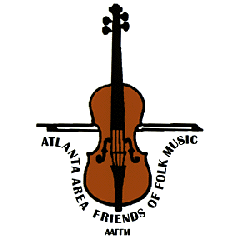PICKING PARTIES AND JAM SESSIONS
One of the most important and valuable characteristics of folk music is that it’s participatory. Throughout history, from Irish cottages to Appalachian cabin front porches to modern-day living rooms and back yards, people have enjoyed the fun and fellowship of making live music together. Some of us are proud and grateful to be in circles of friends who can entertain themselves and each other rather than being dependent on media produced by someone else.
Part of AAFFM’s mission is to nurture participatory music-making. Song circles, picking parties, jam sessions – whatever you want to call them –- provide wonderful opportunities for fun and social bonding. Read on for some guidance on hosting these delightful get-togethers.
Former AAFFM board member Sharon Stepler provides some excellent pointers below. To that we’ll add suggestions from two faithful AAFFM members:
Frank Hamilton notes that sometimes problems arise when someone in the group wants to perform when others are expecting a sing-along or instrumental jam. From much experience Frank’s solution is to have each person in the circle do a performance piece (if he or she so desires) and a participatory piece. That way everyone is satisfied and expectations are clear.
George Hergen expands on Sharon’s last point by emphasizing that participants at all levels of ability, from professional performer to novice, should have equal opportunity to perform (obviously without negative criticism). “I’ve been in situations where some of the more advanced folks ‘took over’ the gathering or maybe didn’t show enough respect for the capabilities of those with less experience or talent,” George observes. “These should be fun gatherings where we all respect and appreciate one another’s musical level.”
Thanks to Sharon, Frank and George for their wisdom. Enjoy your music party!
Tips for Hosting a Song Circle or Jam Session
Sharon Stepler
There are several types of musical gatherings. Some are primarily sing-alongs, others emphasize instrumental jamming, and still others are circles where people take turns performing. And, of course, many gatherings combine elements of all three.
We’ve been hosting monthly gatherings of the “all three” variety for about twenty-five years. Some months, as many as half the group will be singers only, and the other half will have guitars and/or other instruments. Other months almost everyone has an instrument. For the most part, our gatherings are primarily sing-alongs, although in any given month we might do more instrumental jamming or individual performances.
Here are a few tips that have worked well for us over the past twenty-five years:
1. Take turns choosing songs. My number one suggestion is to go around the circle and give each person a chance to pick a song. Otherwise, it’s almost always the case that a couple of people dominate the song selection. It’s more fun when everyone has a chance to participate.
2. Use a songbook and/or song sheets. It’s much easier for people to sing and play along if they have words and chords in front of them. We’ve been using the group songbook Rise Up Singing, supplemented by songs sheets, since we began. Recently we added Rise Again, the sequel to Rise Up Singing, to the mix. We encourage people to bring the books if they have them, as well as 15 copies of any song they’d like the group to do. We have extra copies of Rise of Singing and Rise Again for those who don’t have their own copies.
3. Make time to socialize. While music-making is the primary purpose of our gatherings, we think it’s important for our guests to have the chance to visit with one another as well. We may do a little chit-chatting as we go around the circle, but we save most of our socializing for a break. Generally we stop after we’ve been around the circle once or twice to eat, drink, and visit for awhile, then go back to the circle for another couple of rounds.
4. Relax and have fun. Our motto is “Most of the notes, most of the time”! The group tries to sing and play as well as we can, but we know it ain’t brain surgery. Occasionally we mess up – and that’s OK. Over the years, we’ve tried to make our circles a safe space for people who, for example, are shy about singing in front of others, or who are just learning an instrument. If we focused too much on perfection, folks like that might not be as comfortable participating.
